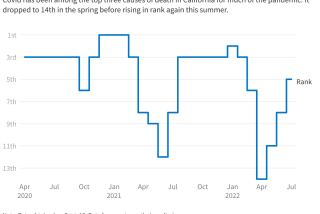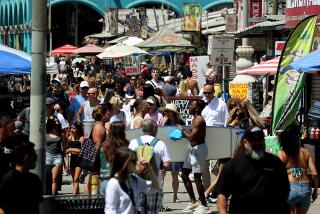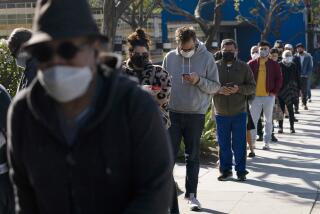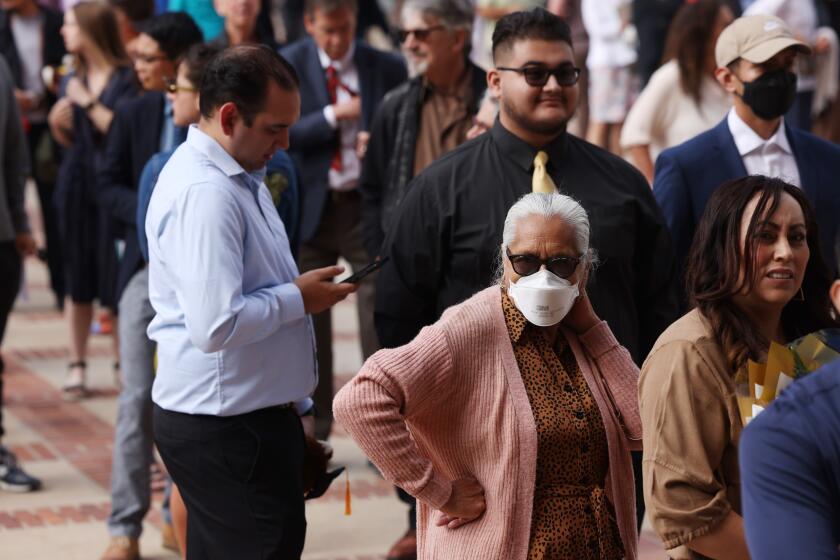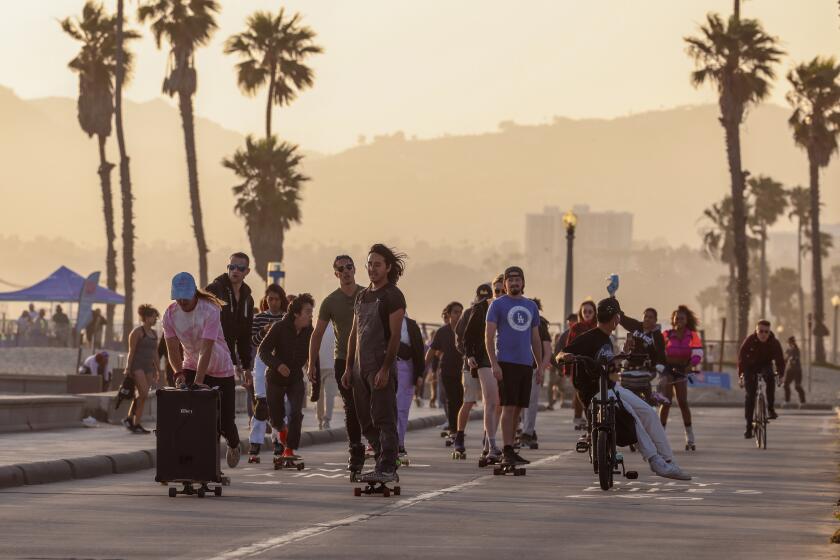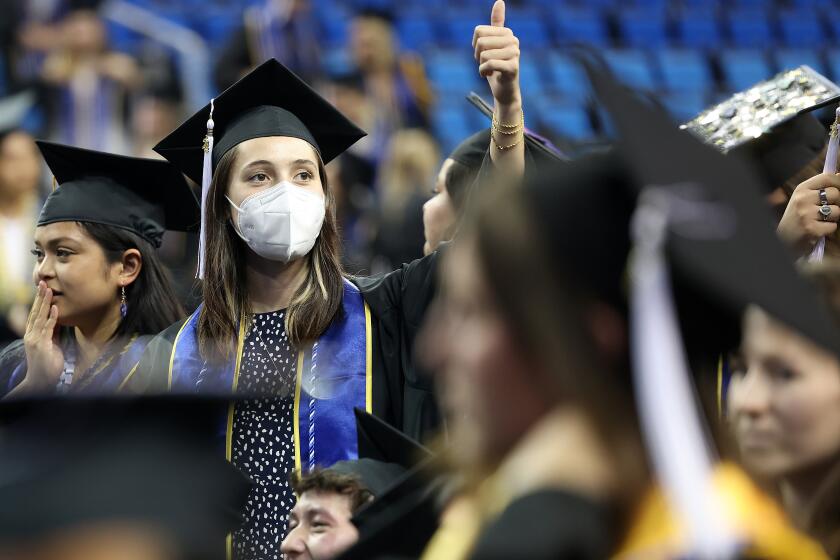California’s rebound: COVID-19 declines dramatically even as normal life returns
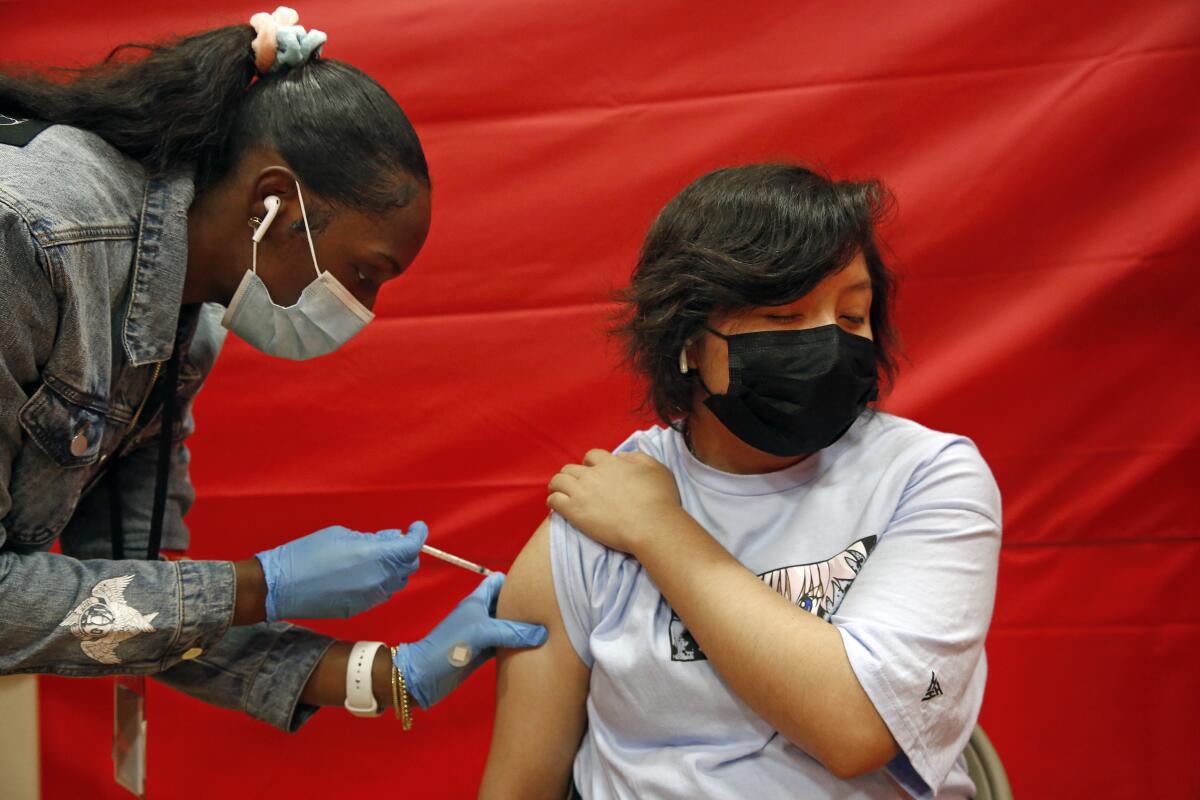
With California set to fully reopen its economy in a matter of weeks, the state hit a key milestone as coronavirus-related deaths and new cases plummeted to dramatic lows.
On Monday night, the average number of daily COVID-19 deaths reported over the past seven-day period was 37 — the same number it has been for several days. It has been the lowest average number of daily deaths in more than 13 months, and a 93% drop from the peak of 553 deaths a day for the seven-day period that ended Jan. 27, according to a Times analysis.
The last time this number was so low was in the first few weeks of the pandemic; the week that ended April 6, 2020, also reported an average of 37 COVID-19 deaths a day.
The numbers are good news for the state, which has rapidly been getting back to normal in the last few months. The declines give officials confidence they can reduce restrictions further in the coming weeks.
California is also recording its lowest number of newly reported daily coronavirus cases in 13 months. By Monday night, California was reporting an average of 1,361 new coronavirus cases a day; the last time the rate was even lower was for the weeklong period that ended April 21, 2020, when 1,410 new cases were reported a day on average.
At the peak of the pandemic, about 45,000 new coronavirus cases were reported daily on average in California over a seven-day period.
COVID-19 hospitalizations are also at their lowest level since the state started systematically reporting the daily figure. The number of people diagnosed with COVID-19 and in the hospital as of Sunday was 1,379. The first time the state began announcing the daily number of people diagnosed with COVID-19 and in the hospital was for March 30, 2020, when 1,617 were in the hospital.
At its peak, California had nearly 22,000 people simultaneously in hospitals with COVID-19, a number that topped out in early January.
The Golden State continues to have one of the lowest average daily coronavirus case rates on a per capita basis in the country.
Across California, 51% of residents have received at least one dose of vaccine; among all residents, 39.2% are considered fully vaccinated.
California ranks 12th in the nation for vaccinating the highest percentage of residents.
The rate at which vaccinations are being administered, however, has slowed, as it has elsewhere in the country. By early April, California was administering about 400,000 doses a day over a seven-day period. Now, just 250,000 doses a day are being administered.
California health officials said the state’s current mask rules will remain in place until June 15 — which is also the target date for fully reopening the state’s economy.
Some public health experts have also feared a surge fueled by maskless unvaccinated people could again disproportionately hurt people of color. Latino and Black residents of L.A. County are less likely to have received a vaccine, and officials say more time is needed to get more members of these vulnerable communities the shot.
In L.A. County, just 38% of Black and 43% of Latino residents ages 16 and above have been vaccinated with at least one shot; meanwhile, 61% of white, 68% of Asian American and 58% of Native American residents in the same age group are at least partly vaccinated.
Though the state has made significant strides in terms of vaccinations, only about half of Californians have received at least one dose to this point — meaning much of the populace is not yet fully vaccinated. Children under 12 are also still not eligible for any shots.
Some people still have had difficulty arranging to get the vaccine. A Kaiser Family Foundation survey found that unvaccinated Latino adults are twice as likely as white adults to say they want the COVID-19 vaccine as soon as possible. But large shares of Latino adults — especially those who are low income, uninsured and potentially in the country illegally — say they’re concerned about having to pay for the vaccine (even though it’s free), having trouble traveling to a vaccine clinic, or feel they’re not able to miss work should they need a day off to deal with the vaccine’s side effects.
Barbara Ferrer, L.A. County’s public health director, warned it’s not worth the risk of moving too quickly to lift mask mandates for vaccinated people.
This “is a risk that we think is unnecessary for us to take, and it could in fact delay our progress on the recovery journey,” Ferrer said. “This is a sensible path forward that allows us time to get more people fully vaccinated.”
More to Read
Start your day right
Sign up for Essential California for news, features and recommendations from the L.A. Times and beyond in your inbox six days a week.
You may occasionally receive promotional content from the Los Angeles Times.
